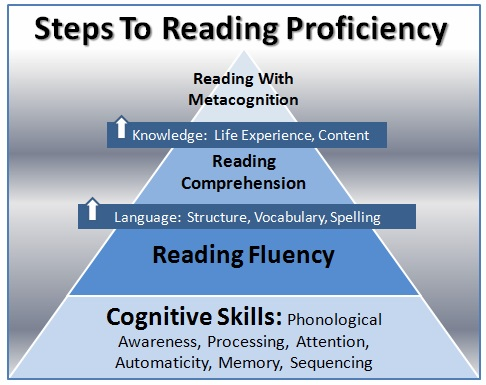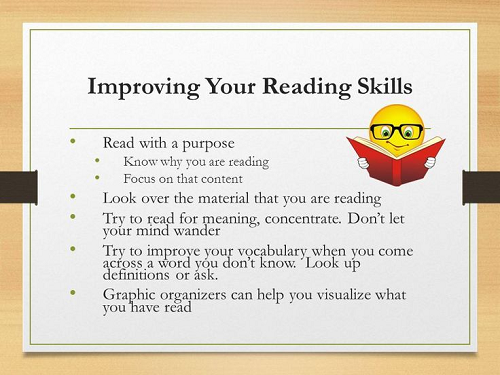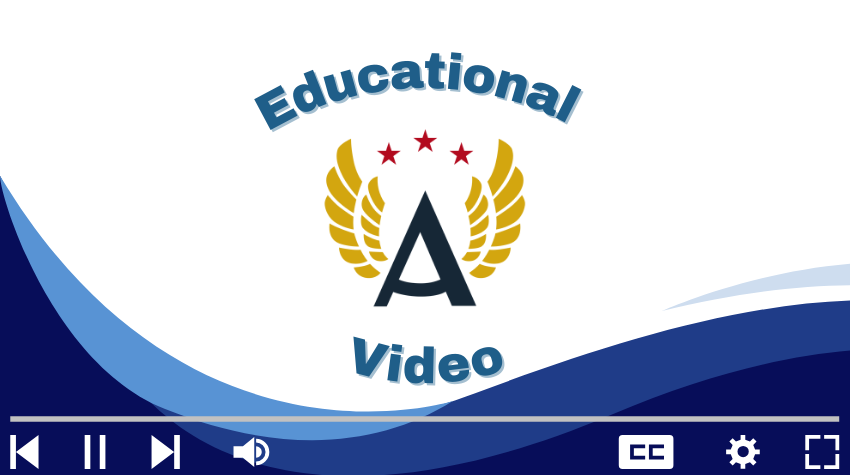Unit 2: Reading—Improving a Skill for Life
Unit 2: Reading—Improving a Skill for Life

Unit 2: Reading - Improving a Skill for Life
Unit 2: Reading—Improving a Skill for Life
Reading
- Select and use prereading strategies appropriate to the text, such as discussion, making predictions, brainstorming, generating questions, and previewing to anticipate the reading selection's content, purpose, and organization.
- Select and use strategies to understand words and text and to make and confirm inferences from what is read, including interpreting diagrams, graphs, and statistical illustrations.
- Refine vocabulary for interpersonal, academic, and workplace situations, including figurative, idiomatic, and technical meanings.
- Apply various response strategies, including rereading, note-taking, summarizing, outlining, writing a formal report, and relating what is read to their experiences and feelings.
- Determine the main idea and identify relevant details, methods of development, and their effectiveness in various types of written material.
- Determine the author's purpose and point of view and their effects on the text.
- Locate, gather, analyze, and evaluate written information for various purposes, including research projects, real-world tasks, and self-improvement.
- Select and use appropriate study and research skills and tools according to the information gathered or organized, including almanacs, government publications, microfiche, news sources, and information services.
- Analyze the validity and reliability of primary source information and use the data appropriately.
- Synthesize information from multiple sources to conclude.
Language
- Understand the subtleties of literary devices and techniques in comprehending and creating communication.
- Critically analyze specific elements of mass media and the extent to which they enhance or manipulate information.
Vocabulary
Lesson Reading
Videos and Interactives (Click on Images to View Content)
 Unit 2: Reading—Improving a Skill for Life
Unit 2: Reading—Improving a Skill for Life Utilize Technology: Take advantage of technology tools and resources to support your reading practice. E-books, audio books, digital dictionaries, and reading apps can enhance accessibility, convenience, and engagement.
Utilize Technology: Take advantage of technology tools and resources to support your reading practice. E-books, audio books, digital dictionaries, and reading apps can enhance accessibility, convenience, and engagement.

